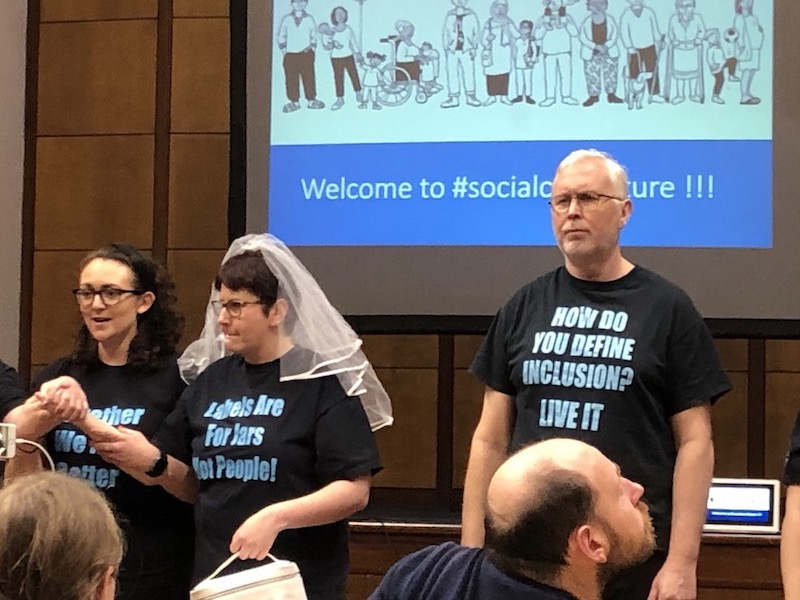Striking a balance for a new social care future

I smiled when I first saw the Social Care Future gathering being advertised. After spending the last two years listening to the experiences of people with learning disabilities and those learning how to adapt working in the sector, it was a welcome ‘cherry on top’ moment for me. After missing last year’s gathering, this was a chance to share in the company of people committed to changing how people (outside the gathering) think of what we describe as social care.
After the buzz of our conference last November, and the TLAP event the month before that, the timing of this gathering in the last two weeks of our self-build research project couldn’t have been better.
The impact of seeing people with learning disabilities express their voice at public gatherings always has the same effect on me. I sit taller, I get goose-bumps, I well up. With the conference opening by MiXiT, an inclusive theatre group, proclaiming their dreams and challenging stereotypes, this effect was even more pronounced. Their t-shirts decreed “How do you define inclusion? – Live It”. Their performance had a powerful effect on me, partly because I’ve heard so many stories from people with learning disabilities in our research about the long journeys they have had to take, through self-advocacy, to find their voice. MiXiT’s voice was amplified and crystal clear – we need to be able to follow our dreams too.
After this opening session, I got to hear about people’s frustrations about the precarious realities of social care support. For many people who joined the joint session by Martin Walker (from TLAP) and Rachel Mason (a parent of a young adult with learning disabilities), the lack of implementation of the Care Act had served to reinforce the deep sense of uncertainty and distrust people shared, from having to endure a sector starved of political engagement.
At our conference in November, our researcher Hannah Macpherson used a bubble-machine to illustrate how the small innovative examples of social care - that offer glimmers of hope - float around like bubbles. There's something inexplicably magical about them, but sadly they are inherently vulnerable, reminding us of the fleeting nature of these moments that we celebrate.
And so, it was heartening that the Social Care Future gathering struck an important balance between celebrating inspiring stories of hope and rolling up our sleeves to take a bricks and mortar approach to tackle the challenges. The afternoon session by Martin Routledge and Helen Sanderson started with getting people to choose a postcard from a collection to describe social care in one word: people’s words were telling… ‘fuzzy’, ‘abstract’ ‘blocky’ ‘difficult’ ‘precarious’. He then switched gear to focus on what good looks like, to identify the steps that we can be taken to make a change, and how this can be communicated to local authorities. This felt like a call to arms to gather the best knowledge in the room to build a platform for change.
We should never try to resist the temptation to enjoy the beauty of bubbles. But we can’t be solely led by the inspiring stories that float around like them. We need to arm ourselves with these stories and the knowledge of what conditions are necessary to support them to achieve wider change.





